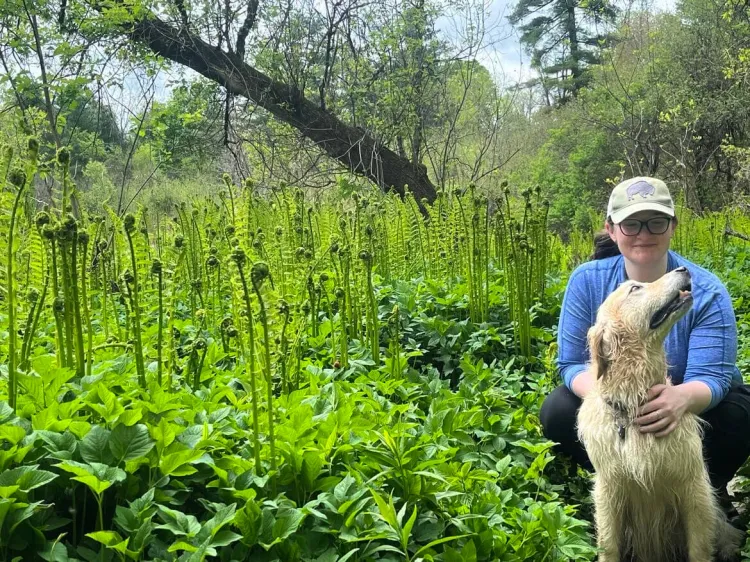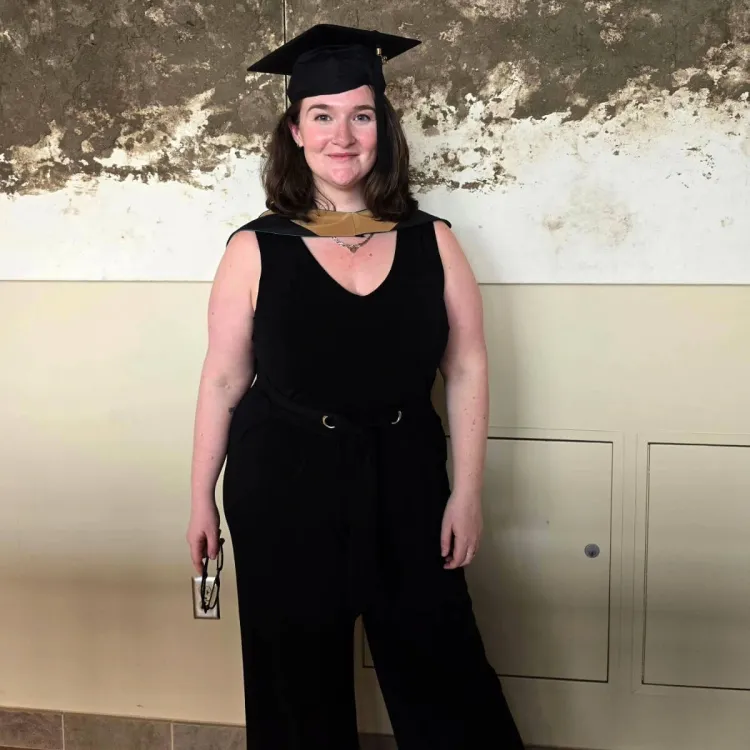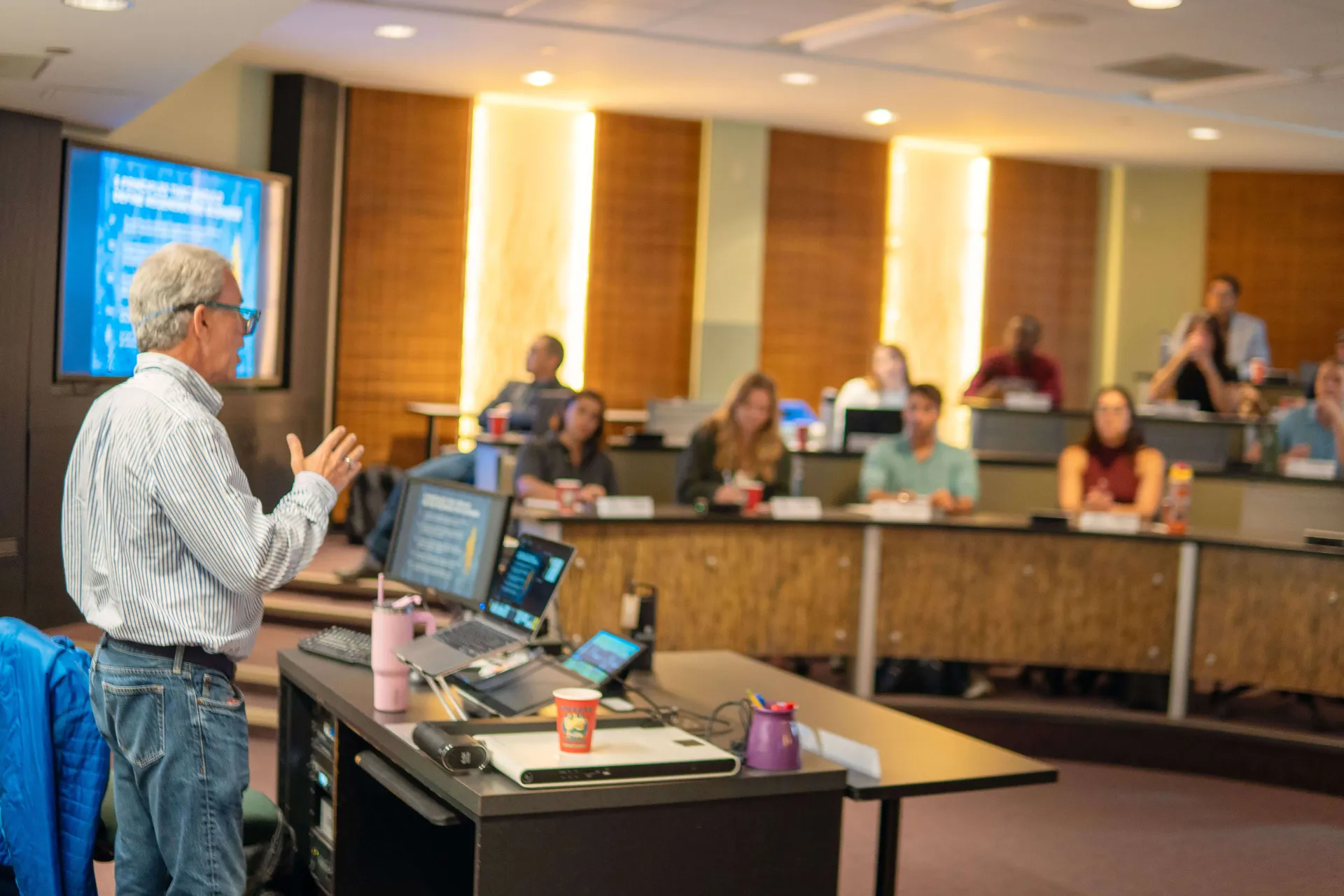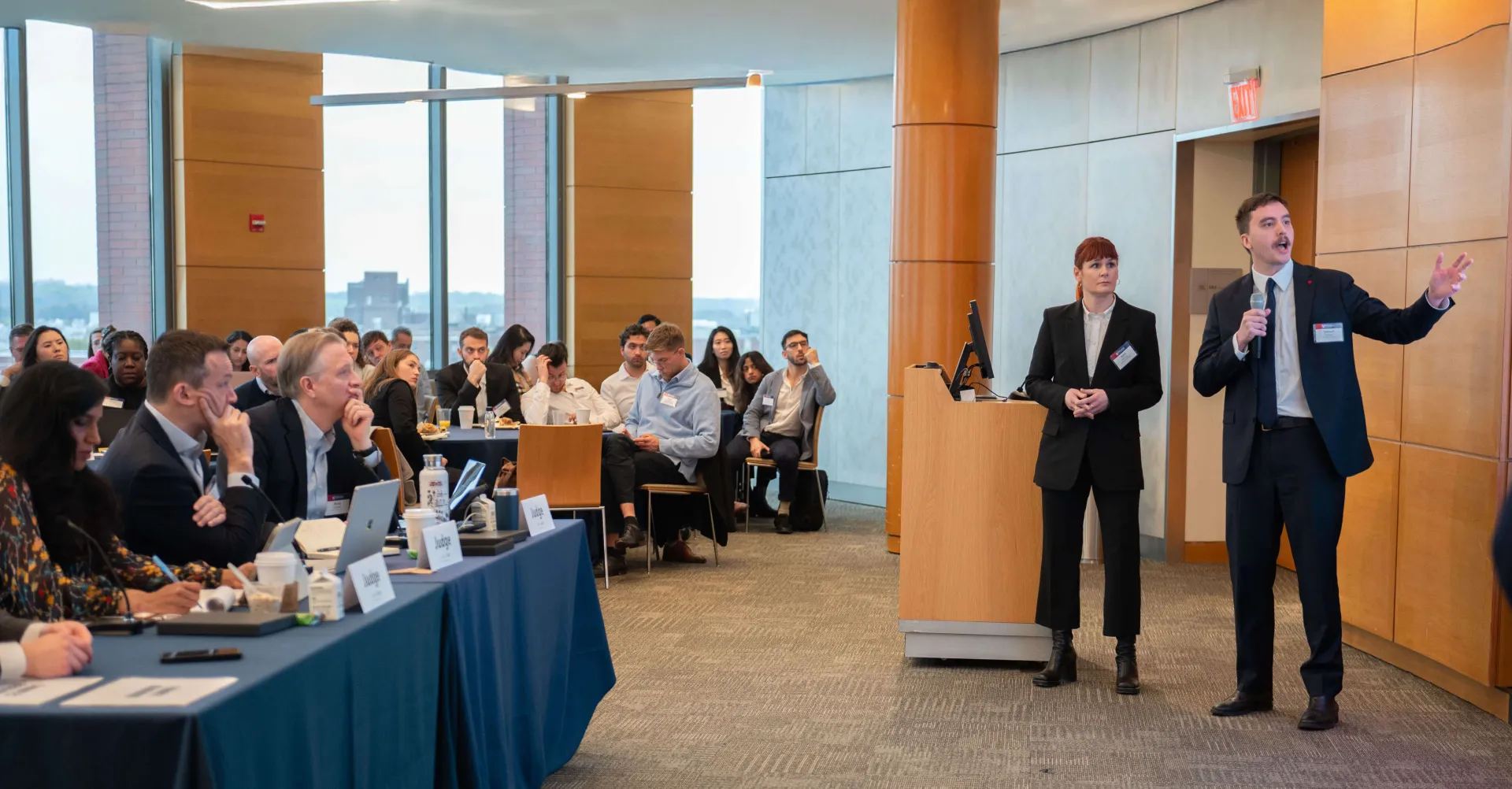The SI-MBA Difference
I was initially drawn to Grossman School of Business’s Sustainable MBA (SI-MBA) program because I was looking for something different – something with a mission-aligned, values-driven “vibe.” At the same time, I needed to know the program could connect me to a meaningful career. It did both.
I started the SI-MBA program after nearly 8 years as a professional opera singer and 7 years in the world of private equity, assuming I could apply the models I had learned in private equity directly to environmental and impact investment. But little by little my experiences in the program fundamentally reshaped that perspective. When I entered the SI-MBA program, I was in it for the trees and only the trees. By the time I left, I understood that a sustainable economy, by definition, must be a just economy for all its participants.
Through intensive classwork, a practicum designing an investment vehicle for steward and employee ownership, and my post-grad fellowship, I saw firsthand that we are more effective impact investors when we design our investment structures with impact at the core. That structural lens is the cornerstone to building a more sustainable and just economy.
But what exactly are the structural barriers that hold back mission-driven businesses and how can we redesign capital to better support them? That’s the question I confronted head on during my post-grad fellowship.
The Problem

Time after time, mission-focused and community-centric companies are unable to access the right financing, impairing their ability to scale their operations and their impact.
The issue is not always the entrepreneur. More often, it’s the structures of the investment options themselves. Traditional financing was built around specific risk/return profiles and conventional business goals, but entrepreneurs building mission-driven, sustainable ventures often don’t fit into those boxes.
Square Peg, Round Hole
I saw this phenomenon firsthand in my post-graduate fellowship with Capital Innovation Lab based in Jericho, Vermont. This was an opportunity I received through the Robert M. Phillips Fellowship for Vermont Entrepreneurial Equity upon completion of the SI-MBA program in August 2024.
With the Lab, I worked with more than thirty Vermont-based female-identifying entrepreneurs to help them develop capital strategies - clarifying what they needed money for, how much they needed, and where they might get it. As I dug into their financials and long-term goals, one pattern emerged again and again: strong, innovative companies were being underserved by the capital landscape.
One common roadblock? What I’ve come to call the “growth hole.” Many entrepreneurs didn’t want to sell off any ownership (equity) in their companies, and for good reasons: some want to maintain control to ensure alignment with their mission, or plan for employee or family ownership down the road. But with equity off the table, and debt underwritten based on historical cash flow that early-stage companies often lack, financing early growth becomes incredibly difficult. Some entrepreneurs turn to friends or family, a collateralized personal loan, or go without entirely, slowing their impact and growth.
Building for Impact
The good news is there are creative financing structures already available and more in development, which can help close this gap. Across the country, and right here in Vermont, impact investors are designing new tools to meet entrepreneurs where they are.
Located in Montpelier, Vermont, the Flexible Capital Fund is one such example providing revenue-based growth financing to companies who, despite a promising path, wouldn’t be the right fit for venture capital or a traditional loan. Globally, the Innovative Finance Initiative is bringing together impact investors to rethink how capital is allocated and incentivized for impact, including designing and scaling promising structures like recoverable grants, forgivable loans and structured exit investments. These are just two examples of many in this energized space, full of impact investors embracing new structures.
Learn More

As SI-MBA marks its 10th anniversary this year, I’m proud to be part of a growing network of graduates working to challenge the status quo and redesign business for good.
If you’re passionate about using business as a force for good and looking for an MBA experience that’s anything but traditional, the Sustainable Innovation MBA program might be the path for you. Whether you're coming from the arts, finance, science, or the nonprofit world, SI-MBA is designed to challenge your thinking and prepare you to lead systemic change.
Learn more at uvm.edu/si-mba.
About the Author
Noragh Devlin is a 2024 graduate of the SI-MBA program at UVM Grossman School of Business. She is an innovative finance consultant, and since graduating, she has partnered with a broad variety of organizations including Village Capital, Ownership Capital Lab, Capital Innovation Lab and Beacon Climate Innovations. Prior to the SI-MBA program, she worked with Centerbridge Partners in investor relations and was a professional opera singer.


